KNIT MAGAZINE
- Knit Products
- Yarn/Fiber
Advances in Eco-Friendly Water-Repellent Technologies and Sustainable Practices

- Post date:
- October 8, 2024 07:00
- (Update: August 27, 2024 21:30)
KNIT MAGAZINE

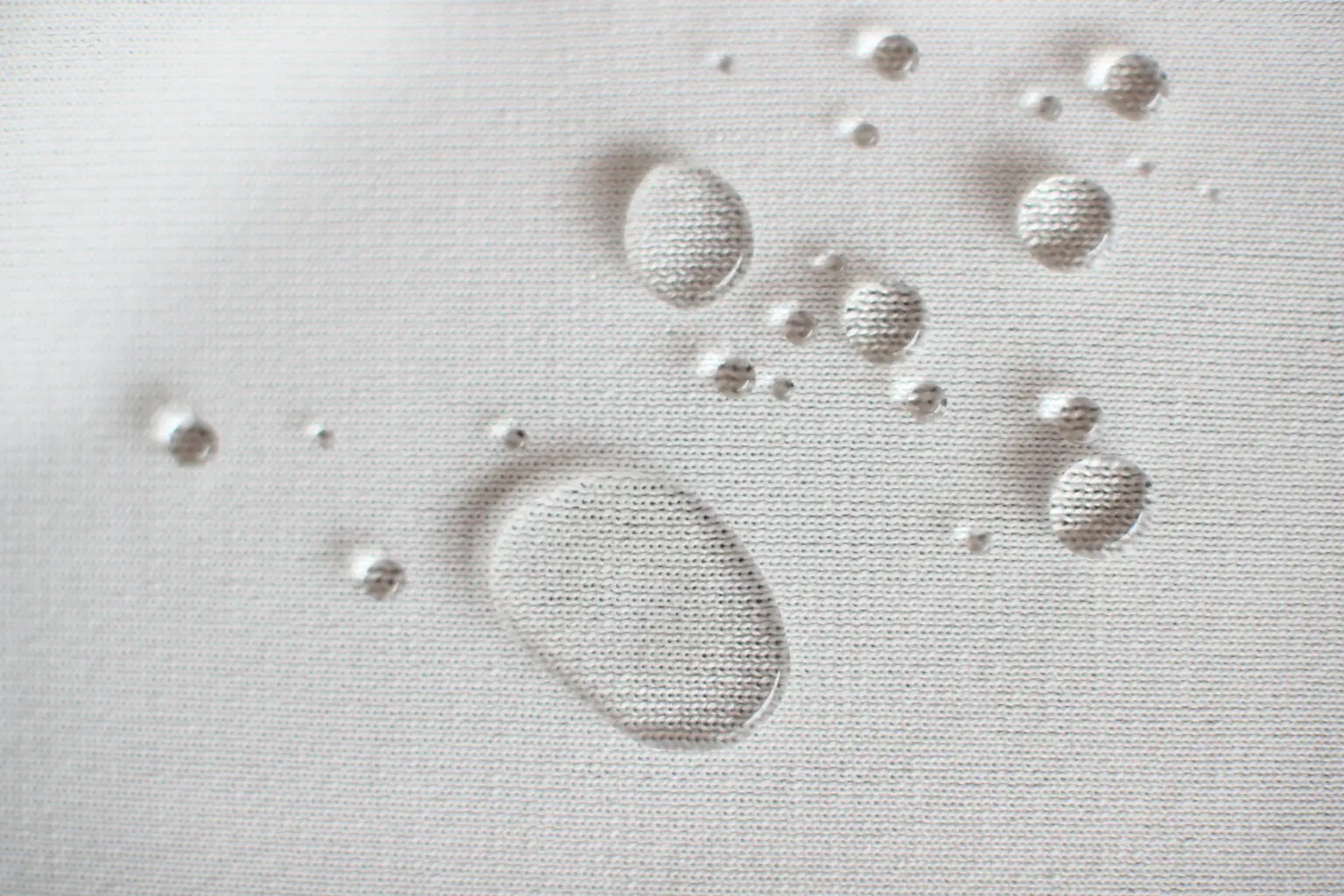
It’s been warmer than a few years ago, and although my hometown is a snowy country, it’s less snowy than it used to be. Every day, we feel that the natural environment has been sacrificed for the sake of our more convenient lives, which has led to more extreme weather.
Meanwhile, in recent years, eco-consciousness has been increasing in many companies.
So, this time, I would like to talk about fluorine treatment and eco-friendly treatment used in water-repellent processing.
Table of Contents
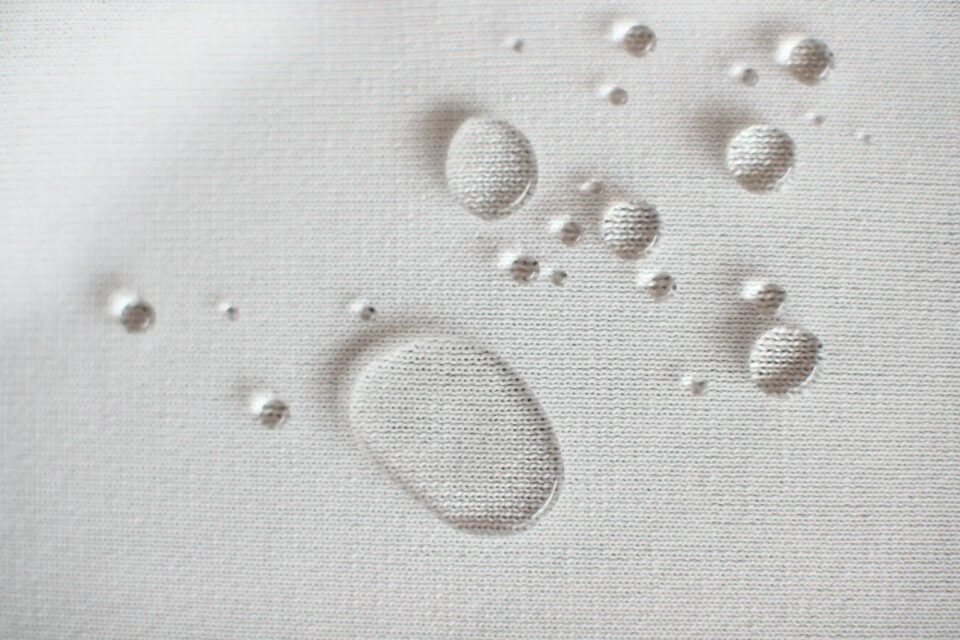
Fluorine-based processing agents are indispensable for the water-repellent function because fluorine has the property of repelling water. Fluorine compounds have extremely weak intermolecular attractive forces with other compounds; in other words, they make it difficult for substances to adhere to each other. By applying this to fibers, they can be given the function of repelling water.
It is said that the substance called PFOA (perfluorooctanoic acid) contained in fluorine-based processing agents affects the global environment and the human body.
In very small amounts, it may not cause much harm, but in large amounts, it is known to be extremely toxic to the human body. Among many chemical substances known as air pollutants, it is considered particularly dangerous, and various agencies have raised concerns about the harmful effects of fluorine.
In response to this, water-repellent products that do not use the C8 type (fluorine-based) processing agents, which contain a small amount of PFOA and have 8 carbon atoms, are being sought after worldwide, especially by leading apparel and sports/outdoor brands. The industry is shifting to using “PFOA-free” and “fluorine-free” water-repellent materials, such as C6 type processing agents, which do not use conventional fluorine-based processing agents, do not contain PFOA, and have 6 carbon atoms, as well as non-fluorine-based processing agents.
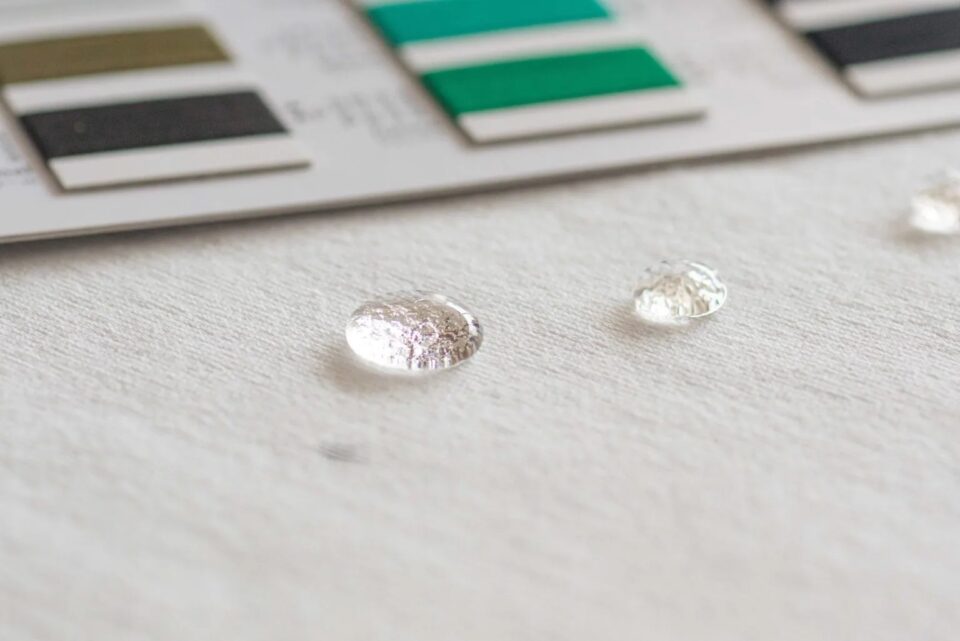
The fluorine-free solvent we use is not only environmentally friendly because it does not contain fluorine, but we are also committed to the sustainability of our processing raw materials.
Palm oil is used in the processing. Palm oil is a vegetable oil derived from the fruit of oil palms native to West Africa. It is used in various fields, and there is RSPO, an international certification system for sustainable palm oil. The RSPO, officially known as the Roundtable on Sustainable Palm Oil, is a non-profit organization consisting of seven stakeholders involved in the palm oil industry.
Our water-repellent yarn Proof PLUS series has a both C6 and fluorine free water-repellent finish.
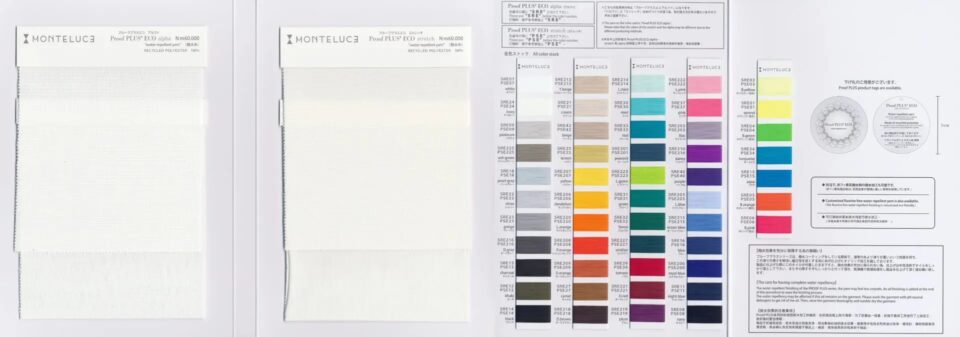
1/60 Proof PLUS ECO ALPHA (Polyester non stretch)
1/60 Proof PLUS ECO STRETCH (Polyester stretch)
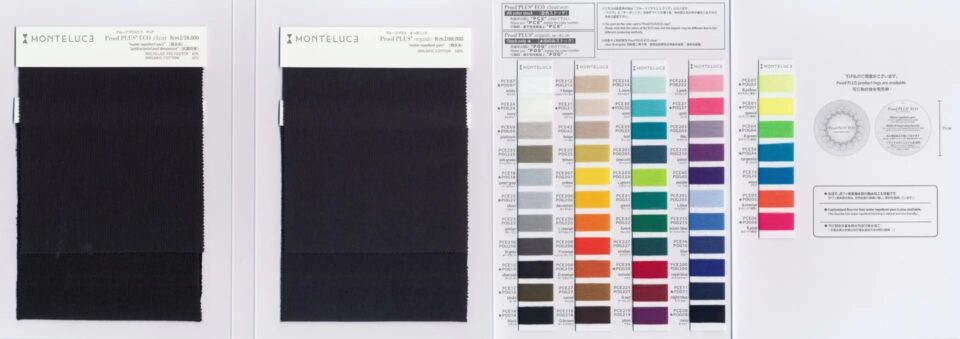
2/68 Proof PLUS ORGANIC (100% organic cotton)
2/58 Proof PLUS ECO CLEAR (Recycled polyester and Organic cotton blend)
This time, we introduced C6 fluorine-based processing agents and fluorine-free options as eco-friendly materials. Moving forward, I aim to shift my consciousness towards improving the environment for the future.
Subscribe Now
To receive the latest updates and insights, subscribe to our newsletter.
Contact Us
For further inquiries regarding this article, please feel free to contact us.